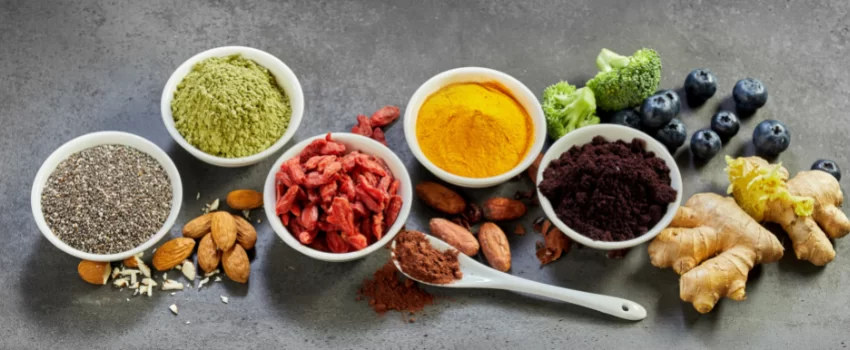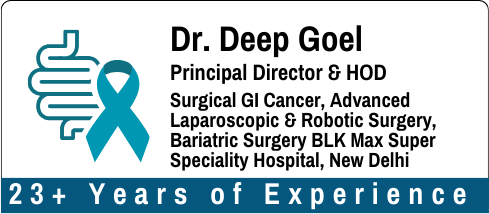Esophageal Cancer Diet Restrictions: What Not to Eat and Safe Alternatives

Dealing with esophageal cancer can make eating feel like a daily struggle. Since this cancer affects the tube that carries food from the throat to the stomach, even simple meals can become painful. Many patients experience difficulty swallowing, indigestion, nausea, or even a complete blockage in the oesophagus. That’s why knowing what to eat and what to avoid is so essential.
The food you choose can either help you feel better or complicate things. Some foods can irritate the oesophagus, interfere with treatment, or contribute to weight loss and weakness.
In this blog, we’ll explore the key diet restrictions for esophageal cancer, a list of foods to avoid, and simple eating tips to help you stay nourished and comfortable during treatment.
Why Eating Is Challenging With Esophageal Cancer?
Esophageal cancer affects the tube that carries food from your mouth to your stomach. When the oesophagus is inflamed or narrowed due to cancer, it can lead to:
- Difficulty swallowing (dysphagia)
- Heartburn and acid reflux
- Choking or coughing while eating
- Weight loss and poor nutrition
- Pain while eating or drinking
To manage these symptoms effectively, it’s crucial to avoid foods that make swallowing more difficult or irritate the oesophagus.
Dr. Deep Goel says, “Nutrition plays a central role in the recovery of esophageal cancer patients. A well-adjusted, soft diet can reduce symptoms, support immunity, and improve overall outcomes during treatment.”
Foods to Avoid With Esophageal Cancer
Dr. Deep Goel shares, “We often see patients unknowingly worsen their symptoms by eating spicy, dry, or acidic foods. Avoiding these irritants is as important as taking prescribed medicines.” Let’s break down the harmful foods for esophageal cancer you should avoid:
1. Spicy and Acidic Foods
Spicy and acidic foods can burn the already sensitive esophageal lining. This is especially true when inflammation is present due to tumours or treatments. They also worsen acid reflux, which is very common in esophageal cancer patients.
Examples to Avoid:
- Hot peppers, chilli powder, black pepper
- Tomato-based sauces (pizza sauce, ketchup, pasta sauce)
- Vinegar and pickled items
- Citrus fruits like oranges, lemons, and grapefruits
- Spicy curries and heavily seasoned foods
These foods increase gastric acid production, triggering symptoms such as heartburn, chest discomfort, and regurgitation.
2. Dry, Coarse, or Hard Foods
A tumour in the oesophagus can cause dysphagia, where swallowing even soft solids becomes painful. Dry or hard foods can often become lodged, leading to choking, coughing, or aspiration.
Examples to Avoid:
- Toast, crackers, dry bread
- Popcorn, Nuts, and Seeds
- Hard granola or energy bars
- Raw carrots or apples
If dry food is unavoidable, soak it in broth or water to make it more palatable. Use gravies or sauces to soften the food’s texture. Always chew thoroughly and eat slowly.
3. Fried and Fatty Foods
Fried and greasy foods slow down digestion and can cause acid reflux, bloating, and discomfort in cancer patients. Additionally, fat-rich meals may leave a greasy residue that irritates the esophageal lining.
Examples to Avoid:
- Deep-fried snacks (fries, pakoras, samosas)
- Bacon, sausages, high-fat red meats
- Cream-based sauces and dressings
- Full-fat dairy like cream cheese, butter, and whipped cream
Switch to baking, boiling, steaming, or grilling instead of frying. Use heart-healthy oils, such as olive oil, in moderation.
4. Alcohol and Caffeinated Beverages
Both alcohol and caffeine are known to relax the lower esophageal sphincter, increasing the risk of acid reflux. For esophageal cancer patients, even small amounts can lead to severe irritation and delayed healing.
Best to avoid:
- Coffee, espresso, energy drinks
- Alcoholic drinks (beer, wine, spirits)
- Cola and caffeinated soft drinks
- Chocolate (contains both caffeine and acid)
Alcohol and caffeine contribute to inflammation and may also interfere with cancer treatment medications.
5. Carbonated Drinks
Carbonated drinks produce gas, bloating, and acid reflux, symptoms that esophageal cancer patients are already prone to.
Drinks to Avoid:
- Soda, cola, sparkling water
- Beer
- Flavoured carbonated beverages
Replace these with still water, coconut water, herbal teas, or nutrient-rich smoothies.
6. Overly Hot or Cold Foods
Extremely hot or cold items can shock or burn an already inflamed oesophagus.
Avoid:
- Piping hot soups or beverages
- Ice-cold milkshakes or frozen desserts
Always select lukewarm or room-temperature foods to ensure they’re gentle on the throat and oesophagus.
7. Sugary and Processed Foods
While not directly harmful in small quantities, excessive consumption of sugary beverages can be detrimental. Replace these with still water, coconut water, herbal teas, or nutrient-rich smoothies.
Avoid or limit:
- Packaged baked goods (cakes, cookies, pastries)
- Sugary cereals
- Artificially sweetened yoghurts or flavoured drinks
- Packaged snacks with preservatives and additives
Try fresh fruits, homemade snacks, and whole-grain items in soft, easy-to-digest forms.
Helpful Eating Tips for Esophageal Cancer Patients
Eating with esophageal cancer can be a daily challenge, but small adjustments in the diet can make a significant difference. The following practical eating tips for esophageal cancer patients will help improve nutrition, minimise discomfort, and support in healing journey.
| Tip | Why It Matters |
| Eat small, frequent meals | Prevents fullness and reflux |
| Sit upright for 30–60 minutes after eating | Reduces acid reflux |
| Chew slowly and thoroughly | Eases swallowing and digestion |
| Avoid drinking during meals | Prevents bloating |
| Add calorie boosters | Use soft cheese, oils, or protein powders |
“No two patients are the same. A personalised diet plan based on your swallowing ability, nutritional needs, and treatment stage can greatly ease your journey”, says Dr. Deep Goel.
Safe Foods to Include in Your Esophageal Cancer Diet
While restrictions are essential, it’s equally crucial to know what to eat to stay nourished. A sample list of safe and nutritious foods includes:
- Soft fruits: Bananas, ripe papaya, steamed apples
- Cooked vegetables: Carrots, squash, spinach (pureed or mashed)
- Proteins: Eggs, tofu, soft fish, ground chicken, lentil soup
- Whole grains: Oats, well-cooked rice, quinoa
- Dairy (if tolerated): Yoghurt, soft cheese, milk
- Healthy fats: Avocados, nut butters (thinned with liquid), olive oil
- Hydration: Coconut water, herbal teas, diluted juices
A patient of Dr. Deep Goel shared, “I couldn’t swallow even soft food without pain, and every meal felt like a struggle. Dr. Goel’s team diagnosed my esophageal narrowing early and gave me a clear, personalised diet plan. The liquid nutrition not only alleviated my symptoms but also provided me with strength during radiotherapy.”
Another patient shared, “The constant acid reflux and burning sensation made eating feel unbearable. When I contacted Dr. Deep Goel, he helped me understand which foods were triggering my symptoms and guided me toward gentler alternatives. Within days, I could finally eat without that sharp pain in my chest. ❞
Managing Treatment Side Effects Through Diet
Cancer treatments can affect your appetite, taste, and digestion. If you’re undergoing chemo or radiation, here are some extra precautions:
- Nausea: Stick to bland, low-fat foods, such as crackers or boiled potatoes.
- Mouth sores: Avoid spicy or acidic foods; opt for smoothies and lukewarm soup instead.
- Constipation: Add soft fibre (such as pureed vegetables or oats) and stay hydrated.
- Fatigue: Choose calorie-dense, easy-to-digest meals and snacks.
Your food choices can significantly reduce side effects and make recovery more manageable.
When to Call Your Doctor?
Even with the best diet and care, some symptoms may indicate that your body needs immediate medical attention. Don’t ignore symptoms that disrupt your nutrition. Seek help if you experience:
- Pain while swallowing even soft foods or liquids
- Weight loss of more than 5–10% in a short time
- Persistent vomiting or diarrhoea
- Trouble staying hydrated
- Fatigue that worsens after meals
Final Thoughts: Eat Safely, Heal Stronger
Esophageal cancer often creates painful eating experiences, but with the proper knowledge, diet modifications, and professional support, nutrition can become a source of strength and healing. Avoiding foods that can be harmful to esophageal cancer, such as spicy, acidic, dry, or processed items, is a crucial first step.
The goal is not just to eat, but to eat safely, comfortably, and in a way that supports your treatment and recovery journey. Following these esophageal cancer diet restrictions ensures that your body receives the necessary nourishment without added discomfort.
If you or your loved one is undergoing treatment for esophageal cancer, consider speaking with a clinical nutritionist to build a customised diet plan. Eating well is part of healing well.
FAQs
1. Are protein shakes safe during esophageal cancer treatment?
Yes. High-protein shakes or smoothies are excellent for maintaining weight and nutrition, especially when chewing or swallowing is difficult. Avoid overly cold or sugary options.
2. What is the best way to gain weight during treatment?
To gain weight, include high-calorie, soft foods like mashed avocado, nut butters (thinned), eggs, and protein-packed smoothies. Eat small meals 6–8 times a day.
3. Are there any fruits I should altogether avoid?
Yes. Avoid citrus fruits (such as oranges, lemons, and grapefruits), raw apples, and pineapples. They are acidic, which can irritate the oesophagus.
4. Can I drink milk during radiation therapy for esophageal cancer?
Yes, if you don’t have lactose intolerance or reflux triggered by milk. Try warm, lactose-free milk or add it to porridge or smoothies.
5. Can I eat outside or order food during treatment?
It’s best to avoid restaurant food due to the risks associated with spices, oil, hygiene, and unknown ingredients. Homemade, soft, and clean food is safer during treatment.
Explore more blogs: Can Lifestyle Changes Help Prevent esophageal Cancer?

